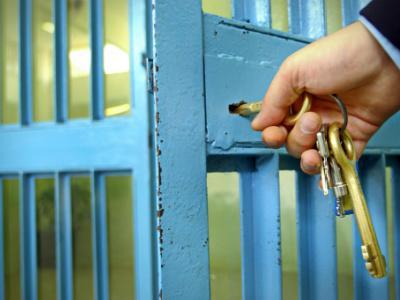Recent Blog Posts
Falsification of Traffic Tickets by Connecticut State Police May Affect Racial Profiling
 To address ongoing concerns about racial profiling and other forms of police misconduct, the state of Connecticut requires police officers to report their activities and provide detailed information about citations and arrests. However, some recent findings by state auditors have uncovered a troubling trend in which police officers have falsified information for their own gain, leading to skewed data that may hide misconduct. While these findings were related to traffic tickets, the actions taken by police officers are likely to affect a wide variety of criminal cases.
To address ongoing concerns about racial profiling and other forms of police misconduct, the state of Connecticut requires police officers to report their activities and provide detailed information about citations and arrests. However, some recent findings by state auditors have uncovered a troubling trend in which police officers have falsified information for their own gain, leading to skewed data that may hide misconduct. While these findings were related to traffic tickets, the actions taken by police officers are likely to affect a wide variety of criminal cases.
Auditors Uncover Thousands of Falsified Traffic Tickets
In 2018, the Connecticut State Police discovered that four troopers had falsified information about hundreds of traffic tickets. They had entered information about these fake tickets in police databases in order to make it look as if they were more productive and to gain favors from their superiors. In response to these findings, the state conducted an audit of traffic ticket and racial profiling databases detailing information about tickets issued between 2014 and 2021. It found a troubling trend in which tens of thousands of tickets were likely falsified during this time.
Massachusetts Court Rulings Lead to Reconsideration of Thousands of Criminal Cases
 In the United States, many people have lost faith in the criminal justice system. Defendants face a number of obstacles as they respond to criminal charges against them, and they are often treated unfairly as prosecutors use inappropriate tactics to secure convictions. Police officers may also engage in illegal or unethical practices to obtain evidence or secure confessions, which can lead to wrongful convictions. Due to systemic biases, minorities are especially likely to be affected by these issues, and this has led to disproportionate arrest and conviction rates for these defendants.
In the United States, many people have lost faith in the criminal justice system. Defendants face a number of obstacles as they respond to criminal charges against them, and they are often treated unfairly as prosecutors use inappropriate tactics to secure convictions. Police officers may also engage in illegal or unethical practices to obtain evidence or secure confessions, which can lead to wrongful convictions. Due to systemic biases, minorities are especially likely to be affected by these issues, and this has led to disproportionate arrest and conviction rates for these defendants.
Fortunately, progress is being made by criminal justice advocates who fight against unfair and illegal practices by law enforcement officials, prosecutors, and others who play a role in criminal cases. In recent years, the Massachusetts Supreme Judicial Court has issued decisions that have allowed for the reconsideration of many criminal convictions. This shows that it is possible to fight unfairness in the justice system and ensure that the rights of defendants can be upheld.
New DNA Collection Methods May Play a Role in Criminal Cases

As modern technology continues to improve, more methods are becoming available to law enforcement officials who investigate and prosecute crimes. In many cases, DNA evidence plays a significant role in identifying suspects, linking them to criminal activity, and prosecuting them for criminal offenses. However, the practices followed by law enforcement when collecting and using DNA samples have raised some concerns about privacy and the potential false identification of suspects. Some new technological developments may allow for more types of DNA to be collected, and this could potentially affect criminal investigations and prosecutions.
Environmental DNA and Forensic Investigations
Scientific researchers regularly collect DNA from the environment and analyze it for a variety of purposes. As DNA sequencing technology becomes more powerful, it is now easy for scientists to quickly analyze DNA samples to determine their origin. Scientists have found that human DNA is often found in the environment, and it could even potentially be used to identify individual people.
Can Scammers Impersonate Law Enforcement to Commit Fraud?
 Today, people are more tech-savvy than ever before. Most people use computers, smartphones, and other devices throughout their daily lives, and they communicate with others through phone calls, email, text messages, social media, and other methods. Unfortunately, this has opened people up to the possibility of being targeted by scammers. A recent trend that has affected many people involves "imposter scams" in which scammers claim that they are law enforcement officials in order to convince people to pay them money. This type of white collar crime can result in significant financial losses, and several government agencies have warned people to be on the lookout for potential scams.
Today, people are more tech-savvy than ever before. Most people use computers, smartphones, and other devices throughout their daily lives, and they communicate with others through phone calls, email, text messages, social media, and other methods. Unfortunately, this has opened people up to the possibility of being targeted by scammers. A recent trend that has affected many people involves "imposter scams" in which scammers claim that they are law enforcement officials in order to convince people to pay them money. This type of white collar crime can result in significant financial losses, and several government agencies have warned people to be on the lookout for potential scams.
Understanding Imposter Scams
Many scams involve a person claiming to be someone else, such as a police officer or government official. As scammers target vulnerable people, they will often prey on their fears and their trust of authority figures in order to convince them to turn over money. For example, a scammer may call someone over the phone claiming to be a police officer, an FBI agent, or a U.S. Marshall, and they may state that the person is being investigated for offenses such as drug crimes. They may then attempt to get the person to transfer money to them to pay fines, ensure that their property will not be seized, or prevent their bank accounts from being frozen.
Problems Faced by People With Mental Illnesses During Criminal Cases
 Mental health is an ongoing concern for many people in the United States. While some people with mental illnesses are able to receive treatment, manage their symptoms, and live productive, fulfilling lives, others may struggle to do so. People with a lack of resources, such as those who do not have health insurance or support from family members, are more likely to struggle with the effects of mental illnesses such as schizophrenia or bipolar disorder, and they may engage in illegal activities.
Mental health is an ongoing concern for many people in the United States. While some people with mental illnesses are able to receive treatment, manage their symptoms, and live productive, fulfilling lives, others may struggle to do so. People with a lack of resources, such as those who do not have health insurance or support from family members, are more likely to struggle with the effects of mental illnesses such as schizophrenia or bipolar disorder, and they may engage in illegal activities.
Unfortunately, when people with mental illnesses become involved in the criminal justice system, they often struggle to receive the proper treatment. The lack of resources available in prisons often causes a person’s condition to become worse, making them more likely to commit additional offenses. This can lead to a vicious cycle in which a person will face longer periods of incarceration and more severe symptoms, making it difficult or impossible to reintegrate into society and ensure that they can receive the proper treatment.
New Laws and Recent Court Rulings Address Firearm Ownership Rights
 Firearm rights and gun control are hotly contested issues in the United States. Gun owners believe in protecting people's Second Amendment right to bear arms, while others are seeking to implement reasonable reforms that are meant to prevent gun violence and deaths. The laws surrounding firearm possession are constantly changing, with court decisions being issued that address people's rights and new laws being passed that may place restrictions on gun owners. By staying abreast of these changes, firearm owners and those who may face criminal charges related to weapons possession can protect their rights and determine how to address accusations that they have violated the law.
Firearm rights and gun control are hotly contested issues in the United States. Gun owners believe in protecting people's Second Amendment right to bear arms, while others are seeking to implement reasonable reforms that are meant to prevent gun violence and deaths. The laws surrounding firearm possession are constantly changing, with court decisions being issued that address people's rights and new laws being passed that may place restrictions on gun owners. By staying abreast of these changes, firearm owners and those who may face criminal charges related to weapons possession can protect their rights and determine how to address accusations that they have violated the law.
Court Ruling Addresses Firearm Ownership by Convicted Felons
The laws of the United States generally prohibit the possession of firearms by people who have been convicted of felonies or other offenses that are punishable by a prison sentence of more than one year. However, some have challenged this restriction, arguing that it should not apply to people who have been convicted of non-violent crimes. A recent decision by an appeals court in Pennsylvania addressed this issue.
Is Facial Recognition Technology Racially Biased?
 Digital technology has revolutionized many aspects of modern life, although many people may not realize the extent to which computer systems track their movements, their online activities, and other information about them. One area that has caused some concern involves the use of facial recognition technology by police. This technology may be used to identify suspects, perform arrests, and prosecute alleged offenders on criminal charges, but it is prone to errors. In fact, there have been several instances in which people have been falsely arrested, and studies have found that many of these cases involve racial bias.
Digital technology has revolutionized many aspects of modern life, although many people may not realize the extent to which computer systems track their movements, their online activities, and other information about them. One area that has caused some concern involves the use of facial recognition technology by police. This technology may be used to identify suspects, perform arrests, and prosecute alleged offenders on criminal charges, but it is prone to errors. In fact, there have been several instances in which people have been falsely arrested, and studies have found that many of these cases involve racial bias.
Wrongful Arrests of Black Men Due to Facial Recognition Technology
There have been a number of instances in which police have arrested people solely based on false identifications provided by facial recognition systems. In one case, a man in Georgia was arrested due to a warrant issued in Louisiana based on a match in a facial recognition database, even though he had never been to the state. In another, a man in Detroit was arrested based on video footage of a jewelry store robbery, but police did not perform any other investigations beyond identifying his image using facial recognition software.
How Often Do Felony Arrests Lead to Convictions?
 Bail reform is an issue that many criminal justice advocates have focused on in recent years. The cash bail systems used in many states are often unfair and unjust, and people who cannot afford to pay bail may be forced to remain in prison until the criminal charges against them have been resolved. While advocates have called for reform to this system, and several states have begun to limit the use of cash bail for people charged with non-violent crimes, opponents of bail reform have claimed that these policies have led to felony offenders being released, increasing the likelihood that they will commit additional crimes. However, by looking at the statistics related to how felony offenses are prosecuted, it becomes clear that these claims are misleading.
Bail reform is an issue that many criminal justice advocates have focused on in recent years. The cash bail systems used in many states are often unfair and unjust, and people who cannot afford to pay bail may be forced to remain in prison until the criminal charges against them have been resolved. While advocates have called for reform to this system, and several states have begun to limit the use of cash bail for people charged with non-violent crimes, opponents of bail reform have claimed that these policies have led to felony offenders being released, increasing the likelihood that they will commit additional crimes. However, by looking at the statistics related to how felony offenses are prosecuted, it becomes clear that these claims are misleading.
Most Felony Charges Are Dismissed
It is often claimed that bail is necessary to ensure that violent offenders will remain behind bars, preventing them from committing additional offenses. However, just because someone is charged with a felony, this does not mean that they actually committed the offense in question. In fact, the statistics surrounding felony prosecutions demonstrate that the vast majority of people who are charged with felonies are not convicted of these offenses.
How Does Police Violence Affect Victims and Others in the Community?
 Police violence has been an ongoing issue in the United States for decades. In recent years, there have been multiple high-profile incidents in which police have been caught on video using excessive force against criminal suspects and taking actions that led to the deaths of people who were unarmed. While these documented examples of inappropriate police violence are shocking enough, there are many other cases where police commit egregious acts of brutality without facing any consequences.
Police violence has been an ongoing issue in the United States for decades. In recent years, there have been multiple high-profile incidents in which police have been caught on video using excessive force against criminal suspects and taking actions that led to the deaths of people who were unarmed. While these documented examples of inappropriate police violence are shocking enough, there are many other cases where police commit egregious acts of brutality without facing any consequences.
While there have been multiple protests and calls for reform, not enough has been done to stop police violence from occurring. In fact, according to Mapping Police Violence, the number of people killed by police throughout the United States has steadily increased between 2019 and 2022. To make matters worse, minorities are disproportionately affected by the actions of police. Even though Black people make up around 13 percent of the U.S. population, they account for around 25 percent of police killings, and they are 2.9 times more likely to be killed by police than white people.
Connecticut Updates Bail Thresholds for People Facing Criminal Charges
 For people who are arrested and charged with a crime, the first priority is often to determine how they can be released from custody. Securing a speedy release can be crucial, since it can help a person avoid consequences such as the loss of a job or issues that affect their custody of their children. In many cases, a person will be required to pay a certain amount of bail. However, some people may not have the resources to make a large cash payment, and they may be required to remain in custody until their case is resolved. To address this issue, Connecticut judges will be implementing a new rule that will allow lower amounts of bail to be paid in certain situations.
For people who are arrested and charged with a crime, the first priority is often to determine how they can be released from custody. Securing a speedy release can be crucial, since it can help a person avoid consequences such as the loss of a job or issues that affect their custody of their children. In many cases, a person will be required to pay a certain amount of bail. However, some people may not have the resources to make a large cash payment, and they may be required to remain in custody until their case is resolved. To address this issue, Connecticut judges will be implementing a new rule that will allow lower amounts of bail to be paid in certain situations.
Understanding Bail in Connecticut
When a person is arrested in Connecticut, bail will be set by the police, staff members of Pretrial Services, or a judge. After paying this amount, the person may be released from custody, and they will be required to appear in court at all scheduled hearings and during their trial. After the completion of the case, the amount paid will be returned to the person, as long as they met all requirements put in place when bail was set.






